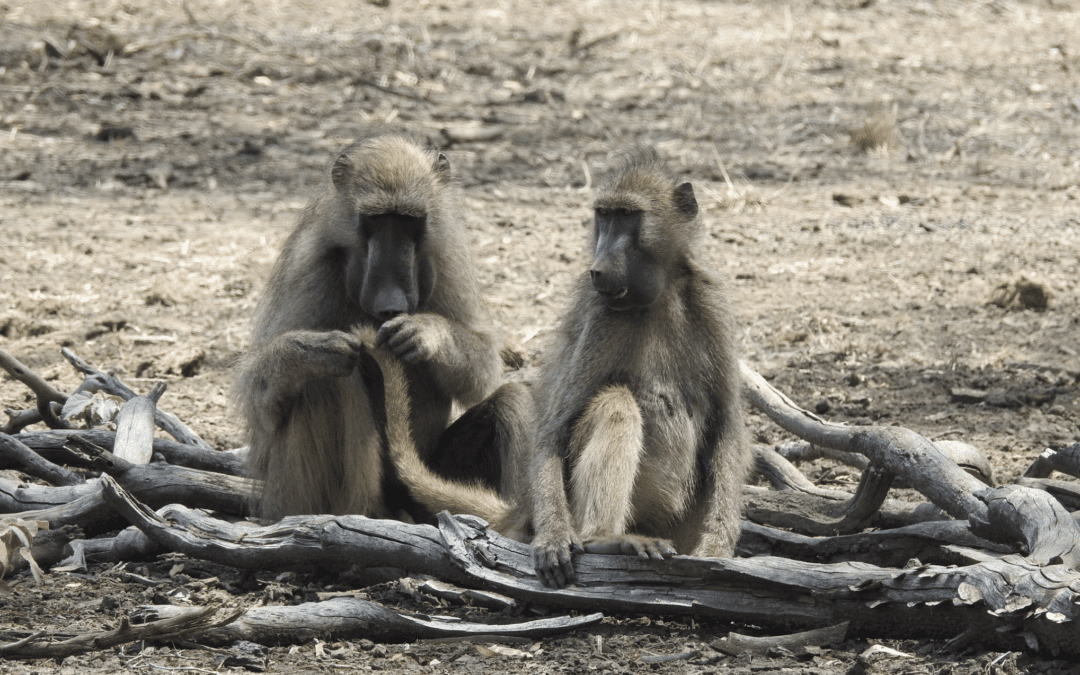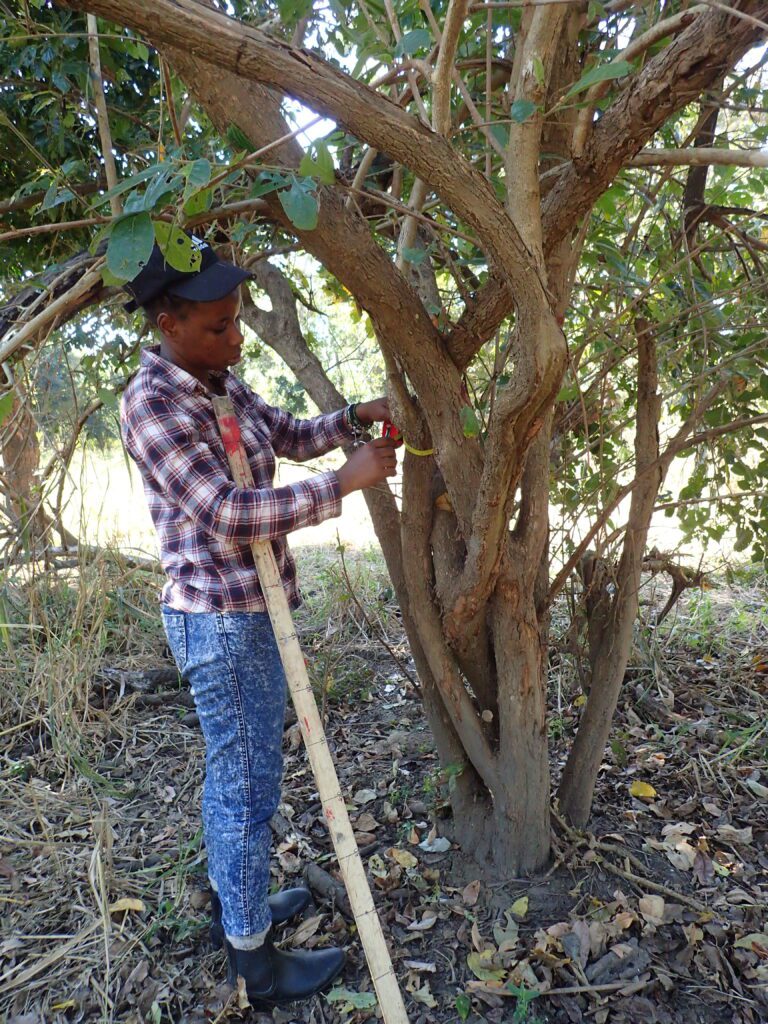Wildlife projects may reveal clues about human evolution.
Gorongosa National Park, already a hotspot for evolutionary anthropology, is about to go on a wild ride with a series of new studies.
Catarina Santos Coelho will study how primates and hoofed animals coexist during extreme seasonal changes, allowing her to provide insights into human evolution. Catarina joined the Gorongosa Human Evolution Field School this year and is driven by her ambition to study primates, one of the most intellectually complex mammal groups.
Emanuela Rabajoli an ethologist, will explore how early humans and their ancestors fed by examining the foraging behavior of highly adaptable baboons. Rabajoli’s love for nature and animal behavior and a passion for primates led her to study the Evolution of Animal Behaviour, taking her to Madagascar’s Maromizaha forest to observe lemurs and to Italy’s Gran Paradiso Park to study wolves and their interactions with ungulates.
These projects are two of nine fellowships funded by the Fundação para a Ciência e a Tecnologia and the University of Algarve, with Dr. Susana Carvalho, Phd overseeing for the Interdisciplinary Center for Archaeology and Evolution of Human Behaviour (ICArEHB).
Three more young Mozambicans—Jacinto Mathe, Ester Lourenço, and Clara Mendes—will use a $70,340 grant from National Geographic to support research for a study on Human Origins in the Coastal Forests of Eastern Africa.
“2024 has been an incredible year for us,” said Susana Carvalho. “Every one of our proposals has been funded so far.”
Paleo-primate scientists receive grant to map baboon evolution.
A team of Paleo-Primate Project Gorongosa researchers will use a $250,000 grant from the National Fund for Scientific and Technological Development of Chile to advance groundbreaking research on primate genetics in Gorongosa National Park.
Over the next four years, researchers Felip Martinez, Maria Joana Ferreira da Silva, Cristian Capelli, Rene Bobe, and Susana Carvalho will use the funds to explore the genetic structure of baboon species in the southernmost part of Africa’s Great Rift Valley, which runs through the heart of Mozambique.
Their project, “A Comparative Framework for Hominin Phylogeography: Genetic Structure of Baboon Species (Papio sp.) in the Southernmost Great Rift Valley,” will shed light on the timing and migration patterns that shaped the evolution and diversity of baboons in the region.
This research builds on the team’s previous work examining baboon genomic variation in central Mozambique, offering fresh insights into primate evolution.
Gorongosa researchers and scientists receive PhD scholarships.
Six rising stars from Gorongosa National Park are set to pursue PhDs, thanks to scholarships to Portugal’s top universities. From Mozambique’s first female primatologist to experts in biodiversity and evolution, these scientists are taking conservation to the next level.
Rassina Farassi, one of the recipients and Mozambique’s first female primatologist, leads the management of the primatology section for the Gorongosa Paleo Primate project. Norina Vicente is a former research technician for the E.O. Wilson Laboratory. Four more—Amade Real, Jonatá Caminho, Clotilde Nhancale and Domingas Matlombe—are graduates of the Gorongosa Master’s in Conservation Biology Program.
Tara Massad, PhD, works with the program and believes the Park’s and the Gorongosa Restoration Project’s commitment to science education is one of the most productive paths to lasting conservation in Mozambique.
“These scholarships reflect the students’ dedication and talent and highlight Gorongosa National Park’s growing impact on global conservation science,” said Massad. “I have always been impressed with Mozambican students’ genuine desire to learn and to grow. There is no greater reward than to mentor students and researchers who are committed to their education.”
The scholarships will be provided by the Consortium of Schools of Natural Sciences and Biodiversity, a collaborative network of academic institutions focused on research and education related to natural sciences and biodiversity in Portugal.
Recipients and the universities the researchers and graduates plan to attend include:
~Amade Real (from our third cohort) Biodiversidade, Genética e Evolução, University de Lisboa
~Jonatá Caminho (third cohort) will defer his attendance at Biociências, Coimbra University until 2025.
~Clotilde Nhancale (first cohort) Biociências, Coimbra University
~Domingas Matlombe (second cohort) Biodiversidade, Genética e Evolução, University de Porto
~Rassina Farassi Biociências, Coimbra University
~Norina Vicente Biodiversidade, Genética e Evolução, University de Porto
Clotilde Nhancale works on her master’s research project.
Leakey Foundation expands opportunities for Gorongosa researchers, Mozambican students and global scholars
Over half of this year’s Gorongosa Interdisciplinary Field School in Human Evolution students received travel funding from The Leakey Foundation and Past Africa. A grant from Past Africa allowed students from Mozambique’s Universidade Eduardo Mondlane to join the program, empowering young Mozambicans to contribute to science. While the field school has no tuition fees, travel costs can be a barrier, and support from these organizations helped students access valuable training. Three students also received the Joan Cogswell Donner Field School Scholarship from The Leakey Foundation.
The Paleo-Primate Project excavations in Gorongosa National Park were also supported this summer by a Leakey Foundation grant awarded to Rene Bobo for research on Eastern Africa’s coastal forests and hominin origins.

